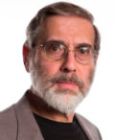Humor
Comedian Nimesh Patel Discovers the Danger of His Profession
How fear has impaired our sense of humor.
Posted December 14, 2018

Imagine being an accomplished Asian comedian, a former comedy writer for the country’s iconic Saturday Night Live show and an Emmy award nominee. You are hired by the Asian American Alliance (AAA), a student organization at elite Columbia University, to perform at an event cryptically called cultureSHOCK: Reclaim. Knowing full well how easy it is to get in trouble for being politically incorrect, you craft a routine that is not only inoffensive to minority groups, but actually enhances empathy for them. Mid-routine, the event organizers throw you off stage for being racially and sexually offensive, and the story is publicized in the media. Many comedians before you have had their careers damaged or even destroyed for making insensitive remarks. Now yours is in danger, too, because your sensitivity-enhancing jokes are misconstrued as offensive.
Well, that is precisely what happened to Nimesh Patel several days ago. As reported in Yahoo News,
According to the Columbia Daily Spectator, “Patel’s performance featured commentary on his experience living in a diverse area of New York City — including a joke about a gay black man in his neighborhood….”
Patel quipped that being gay cannot be a choice because “no one looks in the mirror and thinks, ‘This black thing is too easy; let me just add another thing to it.’” Members of AAA then interrupted the performance and denounced his material about racial identities and sexual orientation.
This incident is particularly interesting to me because I have been making the very same point as Patel at my seminars for two decades. I invite a volunteer to come up front to role-play a passionately hateful homophobe while I play their gay target. First, I demonstrate what happens when I treat the homophobe like an enemy. Inevitably, an increasingly hostile exchange ensues. In the second trial I treat them like a friend. If accused of having chosen to be gay, I respond, “Believe me, if sexual orientation were a choice, I would have chosen straight. You know how difficult it is to be gay? People hate you and say you’re going to burn in Hell. It’s so much easier being straight.” I am particularly thrilled when my volunteer happens to be black, because it offers me the opportunity to make the audience erupt in laughter. I ask the volunteer, “Do you know the difference between being gay and being black?” After the volunteer gives up, I answer, “When you’re black, you don’t have to tell your parents!" You can see this in action in my TEDx Talk, How to Win the War Against Bullying, starting at 17:40. And no one ever mistakes my joke for an insult against blacks or gays. (I wish I could remembered who I heard this riddle from so I can credit them.)
So why did the AAA members denounce Patel’s material? Who is it denigrating? Is it blacks or gays? Neither. It’s the racist society that they live in. His joke reflects the pain that prejudice inflicts on blacks and gays. When Patel says that gay black men are proof that being gay is not a choice, it plainly means that one would not intentionally compound the difficulty of being black in a prejudiced world with the difficulty of being gay in a prejudiced world. It is meant to increase sympathy for blacks and gays, not to degrade them.
I was reminded of the Jewish holiday of Purim, which in some ways resembles Halloween. We masquerade, give gifts of food to friends, put on satirical plays mocking our leaders and institutions, and are required to get so drunk that we can no longer tell the difference between the hero and the villain of the Purim story (the last instruction is rarely taken literally). Have Columbia students similarly lost the ability to differentiate between good and evil, and without the alibi of inebriation?
Furthermore, humor is, by it’s very nature, potentially offensive. Every joke makes someone look bad. So what were the AAA members hoping for – a comedian that presents nothing but positivity? That wouldn’t be funny. And why have the word “shock”in the title of the event if it isn’t even supposed to be challenging in any way?
I figured the AAA's action must be the result of fear. Fear causes our primitive survival instincts to override our higher level thinking so that we may become temporarily less intelligent.
And what were they afraid of? My initial assumption was that it was fear of offending people, especially on the basis of race or sexual orientation. Like everyone else of their generation, Columbia students have been indoctrinated for years in the politically correct philosophy that an insult to one's group identity is a permanently scarring experience. So when they heard jokes about blacks and gays, they feared someone would be offended, and the fear prevented them from recognizing that the jokes were promoting tolerance rather than intolerance.
Later, I realized that there may be a more plausible explanation. Yes, they were afraid, even terrified – but not of people’s feelings being hurt. They were terrified by the prospect of being defendants in an inquisition by university bureaucrats.
This should not be surprising to anyone familiar with the efforts of leading intellectuals advocating for free speech in universities, such as psychologist Jonathan Haidt and attorney Greg Lukianoff, who collaborated on the recent book, The Coddling of the American Mind: How Good Intentions and Bad Ideas are Setting Up a Generation for Failure. They document the establishment by educational institutions of politically correct diversity bureaucracies to investigate and prosecute anyone accused of being offensive. This has instilled great fear into staff and students alike, for being a target of such an accusation can cause prolonged misery and even destroy one’s career.
The student organizers of cultureSHOCK: Reclaim could reasonably expect to be held responsible by the university for anything that goes wrong at the event. All it takes is one student to complain of feeling offended for the school to initiate an investigation. To reduce their chances of getting in trouble for inviting him, it's possible they decided to halt his performance, without concern for the repercussions to Patel’s career. Political correctness was intended to create a kinder society, but it often results in cruelty to those perceived as violating its tenets.
How ironic that Patel was invited to speak at an event called, cultureSHOCK: Reclaim, a venue that is a perfect fit for comedians, who are generally expected to criticize culture and even to shock us. Unfortunately, because every joke has the potential of offending someone, political correctness outlaws almost all humor. The only politically correct humor is that which puts down straight white men, who, according to PC theory, cannot be offended because of their oppressor status, which is why Donald Trump is today’s safest target of ridicule.
Political correctness has, in fact, turned comedy into one of the most dangerous of all professions. Unlike few (if any) other professions, the better you do your job, the more you are likely to get fired. This is documented in Greg Lukianoff’s film, Can We Take a Joke? (The answer is apparently, “Not if you’re a college student.”) The Strange Death of Comedy is a five-minute lecture by Owen Benjamin succinctly addressing this issue. Patel was undoubtedly aware of the danger of comedy and took precautions to avoid controversy. Nevertheless, he underestimated the danger he was facing.
I would like to close with a suggestion to the Asian American Alliance (and anyone wishing to reduce prejudice). Political correctness has done an admirable job of promoting fear of being offensive, so that we must walk on eggshells with each other. But its track record in reducing actual hostilities between groups is questionable, as recent events on campus as well as mass shootings against minority groups have made painfully clear. The reason may be that political correctness has little in common with well-established systems of wisdom. For the past several decades, the West has been turning for wisdom to the East. If you look carefully, you will find better remedies for racial prejudice within Eastern traditions. To explore this, see my article, Ladakh: A Society with No Bullies–Or Victims!




